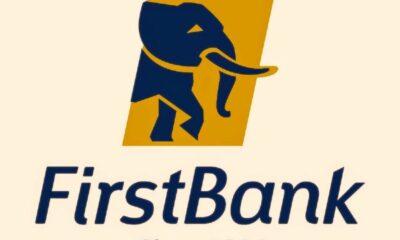Emmanuel Ojeabulu, winner of the 61 st FirstBank Lagos Open Golf Championship has been listed in the WAGR.
The premier golf championship which was held from 18 – 20 November at the golf section of Ikoyi Club 1938 was keenly contested by over 190 low handicap players from several golf clubs in the country. Benin based Emmanuel Ojeabulu won the 3-day championship.
Playing three-shots off the pace going into the last 18-holes, Ojeabulu played one of the best golf of his life, maintaining steady pars for a closing 74, 3-over the course par to win the World Amateur Golf Ranking recognized event by two shots.
Ojeabulu started his game with an opening 75, a second day score of 78 and a closing 74 to replace Ilorin based Aminu Kadir, the tournament defending champion on the winners list.
Overnight leader, 20-year-old product of David Mark Golf Academy, George Paul who was tipped to win the tournament collapsed under pressure closing with an unimpressive 79 to lose by two-shots.
In the third position is Muyideen Olaitan, three-time winner of the coveted FirstBank Lagos Open trophy while Iyare Osaze was further down on the winners chart by one-shot, leaving perennial contender, Olajide Owolabi, who shot tournaments best score of 72 on day two of the competition in the fifth position.
First Bank of Nigeria Limited, sponsors of the annual Lagos Amateur Open Golf Championship has pledged its commitment to the continuous sponsorship of the tournament which is one of the longest running golf tournaments in Nigeria.
Speaking at the closing ceremony of the 61 st edition of the tournament in Lagos on Sunday, the Chief Executive Officer of FirstBank, Dr. Adesola Adeduntan who was represented by Executive Director, Chief Risk Officer of First Bank of Nigeria Limited Mr. Olusegun Alebiosu said “This year made it 61 years of our undiluted commitment to this cause, and we are absolutely delighted with the amazing support and partnership we have enjoyed from Ikoyi Club 1938 thus contributing to building a legacy not only for golf and golfers, but sports in its entirety.
To all the amateur golfers produced at this year’s championship, these champions are an inspiration and testament that you can do the impossible and I look forward to celebrating you as winners in future championships. Remember that in the words of Ben Hogan, “The most important shot in Golf is the next one”, he added.
Satisfied with the turnout of the participants, Golf Captain, Tony Oboh thanked the sponsors for keeping the tournament going, saying FirstBank commitment should be emulated.
“It is not easy to keep a tournament like this going, I therefore congratulate FirstBank for their commitment”, Oboh said.
Since its debut, FirstBank Lagos Amateur Open Golf Championship has been the most consistent and premier amateur golf event in West Africa and has produced great champions most of who are competing in the elite professional golf cadre. Last year, the Championship threw up Ilorin based Aminu Kadir who won the landmark edition. It is expected that this year’s edition will produce another great winner.
Other FirstBank-sponsored sporting events include the Georgian Cup of Kaduna Polo Tournament, sponsored for 102 years; the Dala Tennis Hard Court in Kano Club for over 30 years; the Obasanjo Pro-Amateur Golf tournament of Abeokuta Club now in its 6th year. The Bank’s influence in the development of sport in Nigeria is under its First@Sport initiative.

















